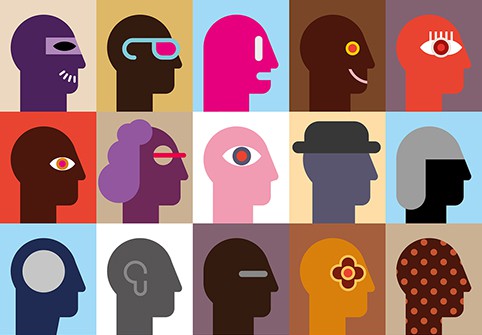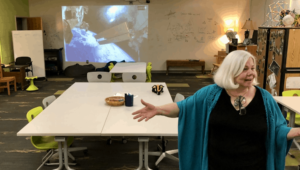The Context-Driven Future of Learning

Techcrunch recently wrote about the future of the web being all about context. This means content will be delivered to users and will be based on preexisting user data. There are some obvious connections to the future of learning. For example, what if there were tools and technology that provided the exact resources that each individual student needed. This is the main idea behind personalized learning. As much as context will be the future of the web, it is also the future of learning.
Soon data will be tailored to specific customer situations. A simple example: Sponsored content in your Google search results thanks to Google Adwords. Much like mobile push-learning, content delivery will be informed by learning data. This will involve deep integration between platforms with less UX differentiation.
According to Falon Fatemi, founder and CEO of Node, “everything in tech is moving toward predictive pre-search, understanding user intent and surfacing relevant info based on this data.” Fatemi describes context as determined by a combination of four data layers:
- A device layer: where devices communicate with one another
- An individual layer: information about browsing history, location history and online records
- A social layer: links people across social platforms
- An environmental layer: information about current conditions, such as nearby businesses, streets and the weather
Fatemi described three advances that will usher in the context-driven future: maximizing network intelligence, developing universal profiles and gaining semantic understanding of user data.
Personalized parallel
Personalized learning is the new meme in education. It will shape the next 20 years the way NCLB and standards-based reform shaped the last two decades. For every student to learn anything anywhere on their own path and at their own pace, the sector will need to overcome a set of technical challenges similar to Fatemi’s trio.
Maximize network intelligence
We need more effective learning platforms like OpenEd where teachers can assign unique assessments to each student. These assessments are automatically graded, they then provide the student with instant feedback and accompanying recommendations (individualized videos and additional resources for support); making the process of quiz to instruction practical, powerful and supportive of an environment that tailors the experience for each student and their unique learning gaps.
Learning platforms, including Fishtree and Realizeit, ingest content from many sources and aid the development of linkages and assessment gateways creating adaptive learning systems quickly and economically.
Curriculum Associates introduced i-Ready which powers adaptive K-8 reading and math learning (see their case studies).
DreamBox Learning uses over 48,000 data points to help create a customized math experience for each student. The adaptive math product captures every decision a student makes while learning (not only between lessons, but within lessons) and adjusts the student’s learning path in real time, keeping students in their optimal learning zone while filling conceptual gaps in understanding.
Develop learner profiles
For students this means Expanded Student Learner profiles and Student Data Backpacks. Data Backpacks, an expanded common electronic student record, an official transcript that follows students through every transition, will be developed and adopted by districts. Expanded Learner Profiles will feature customizable components to fit the unique makeup of each learner’s preferences that will inform platform requirements and family decisions.
Digital Learning Now and Data Quality Campaign joined us in exploring opportunities, challenges and feature insights in Getting Smart on Personalization and Privacy.
Understanding learner data
The future will be personalized, whether it’s online search or learning. The key to both will be sector collaboration that produces cross platform standards. The content-driven internet and personalized learning are in its initial stages of development. But as the tools and technology continue to improve, learning will become more accessible, more tailored, more immediate and more powerful.
For more, check out:
- Implementation Challenges on the Path to Personalization
- Push Learning: How Smart Notifications Will Change Education
- The Future of Learning: Compelling, Customized, Connected & Competency-Based
DreamBox Learning, Curriculum Associates, Digital Learning Now, and Data Quality Campaign are Getting Smart Advocacy Partners.

Tyler Nakatsu is Managing Editor of GettingSmart.com. Follow Tyler on Twitter, @post_west.





0 Comments
Leave a Comment
Your email address will not be published. All fields are required.